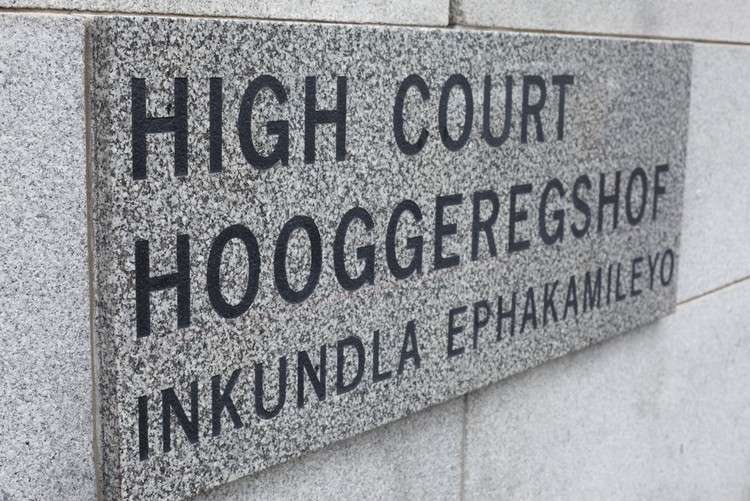

Judge Andre le Grange handed down a temporary interdict preventing PRASA from intimidating UniteBehind members. Photo: Masixole Feni
9 March 2018
Judge Andre le Grange of the Cape High Court granted civil society coalition UniteBehind an interim interdict on Friday, as added protection to their right to freedom of expression.
The coalition says it took this step because of continued intimidation and violence against its members by employees of the Passenger Rail Agency of South Africa (PRASA).
“For us this is a very important step to show PRASA and to show the thugs that we are not going to lie down,” said Zackie Achmat, a member of the UniteBehind Organising Secretariat. “We are not going to accept undemocratic and repressive and violent behaviour in a democracy.”
Achmat is one of the seven applicants in the case against PRASA, its acting Rail Chief Executive Officer Mthura Swartz and its Senior Protection Officer Bulelani Ngxukumeshe.
In his affidavit requesting the urgent interdict, Achmat referred to, amongst other things, an incident on 17 January 2018 at Cape Town Railway Station. “UniteBehind activists were subjected to insults, swearing and threats from about ten security guards in PRASA uniforms” during a demonstration at the Cape Town Railway Station.
He states that some of the PRASA employees who had threatened the activists on 17 January were then present at parliamentary sittings with the Portfolio Committee on Transport on 6 February and 13 February.
The affidavit states: “We were scared and felt intimidated, and have been left wondering what will happen next. We felt insecure about our safety as a result of these threats.”
Marie-Lou Gillespie of De Abreu & Cohen Attorneys, who is representing UniteBehind in the case, says that the PRASA Legal Department are aware of the case and have as yet not opposed it.
“PRASA have until 26 March to oppose the interim interdict,” said Gillespie. “If they do not oppose, we will ask the court to make the interdict final.”
Gillespie explains that an interdict provides added protection for an individual’s rights. “If someone interfered with my rights, and they intimidated me or harassed me, or did any of the things that they had been interdicted from doing, then they would be in contempt of the court order,” said Gillespie.
She says that an interdict provides very quick relief from harassment, intimidations, threats or any other breaches of the interdict. “It’s a shorter route to results, the other route is very slow,” said Gillespie.
PRASA spokesperson Nana Zenani said: “We respect the court ruling.”